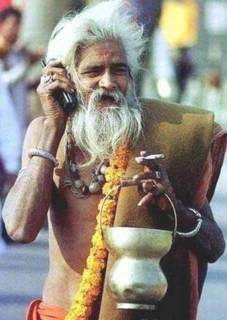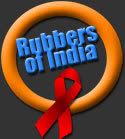
Ten years is not a very long period of time. But the last decade where internet in India has evolved from archaic shell accounts to broadband has been one of epochal change. In these ten years I too have changed a lot.
1995: The ink from a Chinese Wing Sung or a Japanese Pilot pen would fill up the lines of my 'personal' diary
2005: The pitter-patter of my Samsung keyboard gives characters to thoughts on my 'public' blog
1995: The job I'm doing didn't even exist
2005: I wish it didn't
1995: I actually wrote letters on paper and posted them using postage stamps
2005: Email (others write, I forward)
1995: You needed to speak to chat
2005: ;-P
1995: College assignment = Hours in the library > Taking Notes > Comprehension > Analysis > First Draft > Second Draft > Final Copy
2005: College Assignment = Google > Copy > Paste
1995: Debonair, Fantasy et al.
2005: Google
1995: VHS
2005: Streaming video
1995: Shopping for movies and music
2005: Downloading them for free
1995: I had no friends beyond the territorial boundaries of India
2005: I have foes the world over
1995: Salesmen
2005: Spam
1995: Soumyadip Choudhury
2005: AlbinoBee
Click here for the complete post...
Collapse this post

This morning when I checked my blog, I was elated to discover a deluge of comments. At last, I thought someone was reading what I write and writing back to show what they thought of my ideas or me. But the ecstasy was only momentary. One sentence down the comments and the identity of the anonymous benefactors was revealed. SPAMMERS!
Unwillingly I have no option but to give the fingers of potential commentators on my blog a little more trouble. You have to take additional trouble (as if reading my posts was not trouble enough), identify the letters (often twisted beyond recognition) and type them in for word verification. Hope this helps.
An interesting fact about spam which I just discovered (thanks to Wikipedia) is that spam is a backronym, a phenomenon which initially exists as a short word and is later expanded into a phrase. Hence SPAM = Stupid Pointless Annoying Messages or Several Posts A Minute.
Click here for the complete post...
Collapse this post

The night is yet to be over, the morning just on the coast. A banshee cry screeches through the silent dawn. Neither an Irish folklore nor an urban legend, but an invocation of the gods where we ordinary mortals are the collateral damage. The portly aging priest of the neighbourhood temple unleashing his croaking vocals over the loudspeakers (only treble, no bass), followed by religious remixes of item numbers making any effort of early morning sleep an extremely difficult proposition.
Last Saturday the Hindu world celebrated the birth anniversary of Lord Krishna. Every lane in my locality in a show of one-upmanship made it a point to host individual celebrations. My midnight the area was one cacophonous cauldron. Even Nusrat Fateh Ali Khan's lilting voice on the headphones could not come to my rescue.
Religion as I understand it is a very personal thing - a relation between a mortal and the power supreme. Religious occasions act as social get-togethers and used to be solemn affairs. But now entertainment has adulterated it (like so many other aspects of our lives). This obscene display of religiosity gives the noble thought and practice a bad name.
There are laws in place restricting the decibels in public ceremonies. But religion is a force more potent than manmade laws; after all it is the votes in the name of religion that send the lawmakers to the legislatures.
And I believe heaven has excellent soundproofing.
Click here for the complete post...
Collapse this post

Working for six days a week stresses one out. Therefore in order to liven the weekend a bit, I prefer wearing something different. The dirty jeans stay intact, only the shirt or the t-shirt is replaced by a kurta and the nubuck shoes give way to a jooti. But the 'winsome' lasses (have to unwillingly use the adjective as some of them read my posts) I work with unfailingly enquire whether I was coming from or planning to participate in a political rally (depending on which shift I'm on)?
The Kurta, which till not-so-long-ago was the quintessential attire of the bhadralok (gentlemen). Today it symbolises the rabble-rousers of the political kind. Back in the university, my kurta collection was dubbed Marxwadi (Marxist). Did Karl Marx ever don this exquisite piece of clothing?
Is the kurta the exclusive domain of models sashaying down the ramp, politicians plagued with foot-in-mouth disease, flamboyant socialites always 32-all-out facing the camera? "Even our Editorial-Director is often seen in a kurta?" I argue. "But, he fits into the last of your categories of kurta monopolists," comes the sharp response.
You can't win an argument with women. Tomorrow is Saturday and I'll not break my tradition. When you can't beat them, simply ignore them.
Click here for the complete post...
Collapse this post
 The U.S. Department of State's Bureau of Consular Affairs periodically releases Consular Information Sheets advising its citizens about the not-to-dos on their visits abroad. They make an interesting read. I was going through their latest Information Sheet on India and found it amusing. Not because of any fallacies or inaccuracies in the American perspective on India, but because of the underlying humour. Here are some excerpts:
The U.S. Department of State's Bureau of Consular Affairs periodically releases Consular Information Sheets advising its citizens about the not-to-dos on their visits abroad. They make an interesting read. I was going through their latest Information Sheet on India and found it amusing. Not because of any fallacies or inaccuracies in the American perspective on India, but because of the underlying humour. Here are some excerpts:
Crime
U.S. citizens should be aware that there have been unconfirmed reports of inappropriate sexual behavior by a prominent local religious leader at an ashram or religious retreat located in Andhra Pradesh. Most of the reports indicate that the subjects of these approaches have been young male devotees, including a number of U.S. citizens.
Traffic Safety and Road Conditions
Travel by road in India is dangerous. A number of U.S. citizens have suffered fatal traffic accidents in recent years. Travel at night is particularly hazardous. Buses, patronized by hundreds of millions of Indians, are convenient in that they serve almost every city of any size. However, they are usually driven fast, recklessly, and without consideration for official rules of the road. Accidents are quite common. Trains are somewhat safer than buses, but train accidents still occur more frequently than in developed countries.
On Indian roads, the safest driving policy is to assume that other drivers will not respond to a traffic situation in the same way you would in the United States. For instance, buses and trucks often run red lights and merge directly into traffic at yield points and traffic circles. Cars, auto-rickshaws, bicycles and pedestrians behave only slightly more cautiously. Indian drivers tend to look only ahead and often consider themselves responsible only for traffic in front of them, not behind or to the side. Frequent use of one's horn or flashing of headlights to announce one's presence is both customary and wise. It is usually preferable to have a licensed experienced driver who has a "feel" for road and driving conditions.
If a driver hits a pedestrian or a cow, the vehicle and its occupants are at risk of being attacked by passersby. Such attacks pose significant risk of injury or death to the vehicle's occupants or at least of incineration of the vehicle. It can thus be unsafe to remain at the scene of an accident of this nature, and drivers may instead wish to seek out the nearest police station.
Special Circumstances
A number of U.S.-citizen men who have come to India to marry Indian nationals have been arrested and charged with crimes related to dowry extraction. Many of the charges stem from the U.S. citizen's inability to provide an immigrant visa for his prospective spouse to travel immediately to the United States. The courts sometimes order the U.S. citizen to pay large sums of money to his spouse in exchange for the dismissal of charges. The courts normally confiscate the American's passport, and he must remain in India until the case has been settled. There are also cases of U.S.-citizen women of Indian descent whose families force them against their will into marriages to Indian nationals.
Click here for the complete post...
Collapse this post

Militancy in Indian 'mainstream' journalism has become synonymous with Kashmir. Time and space permitting, the Naxals manage to squeeze their way through. Northeastern India in general finds scarce mention. A sprinkling of Manipur, Assam and Nagaland somewhere in the ticker or buried in the inside pages. And any remnant of the tiny troubled state of Tripura in the consciousness of the 'national' media seems erased.
I came across some statistics on the official website of the Tripura Police which made me ponder. The numbers might not give a close competition to the toll in Kashmir, but they are not insignificant enough to be ignored to oblivion.
Extremist related Incidents in Tripura
(1999 - June 2005)
Persons killed by extremists: 914
Persons kidnapped by extremists: 1469
Extremists arrested: 767
Extremists killed: 272
The absence of international interest in Tripura does not mean that it is not a matter of national concern. Is it because one of the reasons behind militancy in Tripura is the political rivalry between the Congress and the Communists in the state (ironically working hand-in-hand at the centre) apart from the issue of mass immigration and land alienation? Not commanding a large enough vote bank or circulation and viewership, are the people of those parts destined to remain the insignificant others?
Click here for the complete post...
Collapse this post

The Chief Minister of a communist ruled state calls up the Union Communications Minister and ignites a revolution. Not a Naxalbari redux, but mobiles phones have broken through the barriers of class in its decade old Indian existence. The hawaii chappal sized handsets have shrank to become pendants hanging from the neck. The CEO's symbol of affluence is now a necessary evil for the chowkidar.
A payment from a newspaper for my efforts in publishing a city guide funded my first mobile phone. It was to me a symbol of my self-sufficiency, an avenue for future growth and a balm for my father's incessant worries about my well-being. But the initial ecstasy lasted as long as my first recharge (my mobile woes demand a separate post, more about them later).
Now when I can talk aloud to myself on a crowded bus and nobody gives a damn (except for the all-ears types in their never ending endeavour of trying to pick some juicy bits). A decade earlier I would have paid for the college education of a psychiatrist's kid. With call rates as low as 75 paise (approximately 0.34 cents) a minute I might as well speak to someone.
In town, out of it, in the loo or out there in the meadows I am never alone and neither are 60 million other Indians.
22 August 2005 marked the tenth anniversary of that momentous phone call. 10 years down the calendar and I can even blog from my mobile!
Click here for the complete post...
Collapse this post

A burgeoning economy, a vibrant democracy. But I can't even get my seven hours of sleep every night, while our elected representatives and the bureaucrats bask in the cool of their air-conditioned bedrooms. Perhaps in the pirated editions of the dictionaries on their dusty shelves the word 'power' refers to only the political type.
In the five decades of planning, we have claimed strides in the field of agriculture and industry, but what about the basic fodder required to run those sectors and the rest of the country - Electricity? Most of our existing electricity generating facilities are performing far below the optimum. Distribution losses are exorbitant. Huge infrastructure plans have been drawn up but I don't recall any major reforms in the power sector, except for the government's post-liberalisation cure-for-all-ills - privatisation. But the patient doesn't seem to be getting any better, only the cost of medication is going up.
If localities in the capital (with the obvious exception of the posh and VIP areas) have to go without electricity for more than 10 hours in a day, just imagine what the remote interiors have in stock for them.
I pay my taxes, pay my energy bills in time and follow the laws of the land. But yet I don't get a good night's sleep and it's party time for the mosquitoes. Perhaps because of my fundamental right to vote, which I exercise to elect people who can't make a difference, perhaps because I have no other choice. Now I'll make hay when the sun shines and beat them at their own game. I'll get an inverter and get my rechargeable battery powered sleep while the world around stays awake, powerless.
Click here for the complete post...
Collapse this post

A telecaller from a bank that never sleeps woke me up from my midday slumber. A oh-so-sweet voice asks me whether I would like a free credit card. Free credit, who doesn't want that. But all the credit that I needed after a graveyard shift was of forty winks. In the most pleasant tone that I could manage half-asleep, I thanked her for her efforts to deprive me of my debt-free status and switched the mobile off. My much-needed seven hours of sleep had been cut short by an hour. I pondered over the pros and the cons of a credit card and the adage
Jitni chadar ho, pair utna hi phailao (Stretch your legs only as far as the sheets go) put a stop to all of my spending dreams. I had heard enough of credit card woes from my colleagues and cousins and I didn't want to add another unwarranted enigma to my already 'complicated as a woman's mind' life. I am content with my debit cards and they also keep a check on my shopaholic gene (I inherited it from my mom).
Already a debt of $100 is pending against my Indian citizenship as percapita external debt. I think the credit card companies have to wait till that is cleared before commencing to drill a hole into my wallet.
Click here for the complete post...
Collapse this post

33% - is the space occupied in the main section of the Times of India and Hindustan Times (the two largest circulated English language dailies in India) by government sponsored advertisements on the occasion of the 61st birth anniversary of the 6th Prime Minister of India - Rajiv Gandhi.
Is the taxpayer's hard earned money being misused to please the most powerful resident (I use this term as not to offend my right wing friends) of the country? Letting her know that the nation (read Congress ministers) hasn't forgotten her late husband. But those full-page colour ads have cost us (slaving Indian citizens) millions and people are still starving in Orissa.
The media of course will remain mum; they are busy counting the greens. Moreover they are more concerned with Aamir Khan's alleged love child.
Let's see if on 2nd of October the Father of the Nation receives such lavish tributes from a grateful nation.
Click here for the complete post...
Collapse this post

The forbidden fruit supposedly tastes better. Therefore it lures. And all our newspapers and magazines seem to have bitten the bait. Is adultery the flavour of the season? The city supplements, the men's mags and the ladies periodicals (yes I read them all) are abuzz with this cheating thing. It is not that the libidinous men and women of our nation have started grazing in alien pastures only after the discovery of the tenth planet in the solar system. Then why this sudden deluge? Is it because anything remotely associated with the three-letter word responsible for a billion plus Indians sells and outsells any of those hotselling hotcakes? And since the competition is doing it, why shouldn't we?
Or is there a more sinister agenda behind all this? No, not the ISI, but our ever so inefficient Department of Family Welfare which in the face of the unplanned beneath the sheets activity of the burgeoning Indian population had to change its name from Department of Family Planning. Using our oh-so-willing media to encourage the uninitiated to the practice of wandering. This will act in two ways. First, research (?) says the practice of protected sex is more prevalent when the partner is not the spouse. Extra protection means less population. Second, extramarital affairs will lead to broken marriages, which will in turn lead to lesser probability of new babies being born. And in the not so distant future, the dream, which even the forced sterilizations of the emergency era couldn't achieve, will become a reality. India will not overtake China in human numbers. But you can never be sure. The Chinese are pretty good at imitating.
Click here for the complete post...
Collapse this post

The silence of the city at midnight is almost eerie. All that my auditory sense perceives is the hum of the air conditioner and the clitter-clatter of keyboards. I peep out from my 17th floor office window and the city stretches for miles. The lights fade away only at the horizon. A few dark spots here and there. Power cuts, maybe. Daytime is so different, so many people around. Night brings along solitude and loneliness. Both so different, yet so similar. Both ways I'm lost, in the crowd or in myself.
Light is said to be life and darkness death. But in absence of darkness what significance does light have? Day dazzles and night soothes. Ever been to the countryside when the moon is a waxing crescent? Full moon nights are almost like the day, just filtered through. New moon nights have nothing to show. On one such night, many moons past when I, perched on my late granduncle's shoulders wandered through the paddy fields. The stars sparkled. I recited a newly memorised rhyme. The silhouetted trees swayed by the easterly, a glistening brook gurgled past. Restless tadpoles created ripples on the tranquil waters of the pond, the sickle shaped moon danced amongst the stars in reflection. The silence of the usually cacophonous crickets left only the wind and the brook as accompaniments to my singsong rhyme.
Whenever the beauty and the enigma of the darkness whelm me, I can't help but recall that night. Perhaps that memory has something to do with me losing my first-ever slingshot (which my granduncle had crafted for me) sometime during that nocturnal wandering.
Click here for the complete post...
Collapse this post

The wild west has its Harley-Davidsons. In the relatively tame east we have the Royal Enfields. The motorcycling legend celebrates its golden jubilee in the land of the Mahatma this year. The first indigenously produced batch of 163 Enfield Bullets rolled out of the assembly line in 1956. But actually it was back in 1949 that the 350cc Bullet debuted on Indian roads. Its 1901 establishment in England makes it the oldest surviving motorcycle brand in the world!
This legend is ubiquitous on the Indian landscape. The milkman to the policeman, the soldier to the sophomore, all can be seen astride a Bullet. The advent of Japanese bikes may have dented its mass appeal. But the fact remains that the late arrivals are Boys' Toys and the Enfields will remain Men's Machines (though this bastion has been breached of late by a few woMEN).
Supposedly still made the way they used to be, these single cylinder timeless classics have accelerated their way into the hearts and minds of motorcycle enthusiasts across the Indian subcontinent, the United States, Europe, Japan and also the lands down under.
Enfield is not only about the power, it is also a tradition backed by a century old history, it is a way of life.
Hail Enfield!
Click here for the complete post...
Collapse this post

Today is India's Independence Day, a national holiday and I'm still slaving at the office. I forgot to add this fact in my earlier post lamenting my relative lack of freedom. But I don't exactly regret coming to work, as I didn't have much to do at home.
One tradition that I noticed today (I don't know how it escaped me for so long) was of kite flying on Independence Day. Rooftops crowded with kite enthusiasts of all ages, shapes and sizes; something reflected in miscellanea of kites congesting the skies over the (surprisingly) deserted Delhi roads. The soaring paper and bamboo contraption is perhaps symbolic in many ways of our freedom.
A freedom with strings attached.
A freedom as fragile as paper.
A freedom wary of the rain and strong winds.
Too many freedoms make the skies a cut-string place.
Click here for the complete post...
Collapse this post

Delhi nowadays resembles a city under siege. Armed security personnel everywhere, fingers lightly placed on the trigger. This is no security drill. As 15th of August 2005 draws near, every citizen is a suspect. I can't venture out at night without being frisked. Is this the freedom our forefathers had dreamt about? Those momentous words of Jawaharlal Nehru, "At the stroke of the midnight hour, when the world sleeps, India will awake to life and freedom," hold very little significance. Life halts and individual freedom is curtailed.
When I was a little child I couldn't comprehend the meaning of the word 'independence.' And when I did, militant organizations called for a bandh on every Independence Day. I couldn't venture out of my own home. Our school and many others in the hill city of Shillong held the Independence Day celebrations one day in advance. Which ironically coincided with Pakistan's independence day (India's estranged sibling).
In 2001 when I visited Sanchi, a small town in central India (a prominent Buddhist pilgrimage) was the only time my conscious mind could feel 'free' on Independence Day. When will the time come when the cities of modern India will be as free as the small towns and villages of the interiors? When will school kids in Jammu and Kashmir and the North East unfurl the national flag on the 15th of August without any fear and apprehension? When will come the day when I don't have to frantically search for my identity card the moment I see a man in uniform eyeing me? When can I live my freedom?
Click here for the complete post...
Collapse this post

1984 - is not only Orwellian fiction, but is also a bloodstained reality. The Indian Prime Minister Manmohan Singh calls it a blot on India's history. The fabric of India's post-independence history today has been reduced to a dirty tattered rag. Nellie, Delhi, Bhagalpur, Bombay, Gujarat and so many more that escape our ephemeral memories.
The Nanavati Commission investigating the 1984 massacre of Sikh's in the nation's capital has tabled its findings. The politicians bound by tradition will yet again make a mockery of parliamentary democracy in the name of protest. And going by the past track record the guilty politicians will walk away scot free.
Referring to the slaughter of 3,000 Sikhs in the aftermath of his predecessor and mother Indira Gandhi's assassination by her bodyguards, the then Prime Minister Rajiv Gandhi infamously said, "Jab bargad ka per girta hai, to dharti zara si hilti hai" (when a big tree falls, the ground is bound to shake a little). This and so many more trembles still reverberate in our nation's conscience (if we have one).
I find an echo of my thoughts (and perhaps of many other Indians) in Vir Sanghvi's article 'A massacre is a massacre' in yesterday's Hindustan Times.
Click here for the complete post...
Collapse this post

In an earlier post (This is Not News) I lamented the degrading quality of Indian television news channels. It might seem that I'm getting obsessed with this, but I can't simply help it. This morning NDTV 24X7 aired a story about the much awaited movie Mangal Pandey - The Rising. According to the esteemed news channel, actress Rani Mukherjee is playing the role of an '18th century' nautch girl. The Sepoy Mutiny or the First War of Indian Independence on which the movie is based took place in 1857, i.e. in the 19th century. The movie is to release on August 12, and I could be proved wrong. It just might be the ghost of an 18th century tawaif enticing the 19th century rebel Mangal Pandey.
This might seem trivial. But when you promise quality and truth, even minuscule facts matter.
Click here for the complete post...
Collapse this post

Sunday mornings. I love them. No office. Grey clouds had curtained the fulgent Delhi sun. A light breeze caressed the week's laundry on the balcony. The rustle of the newspapers littering the floor was almost a lullaby. The mobile phone buzzed, cutting short my plans for a long slumber. 'Happy Friendship Day!' the SMS read. Soon to be followed by more buzzing and more SMSes clogged my inbox. Some humourous, others satirical. I hadn't been watching much of the idiot box for the last few days, so was ignorant of which 'day' was up next.
Time and distance alter many a relationship. There was a time in my early youth when I had friends galore, but today I feel that most of the people I know now are mere acquaintances. Where have all my buddies gone? Some lost me and I lost the rest of them. Bygone are the days when we exchanged long handwritten letters always belatedly delivered by the postal department. The e-era was supposed to make the barriers of time and distance wane. But modern technology, which was supposed to make our lives easier and leave us with more free time is in fact eating into whatever spare we had.
Professionalism is eroding our personal traits. Leaving us very lonely in the process. Work hour pressures do not let colleagues to evolve into friends. A few do, but that's only a few. Perhaps it is also because we have become more selective in making friends. The subconscious might have realised that the affinity between a small closed group is stronger than in a large asymmetric one. Perhaps over the years we have redefined the term, excluding more elements from the set.
Whatever may be the reasons but I didn't reply to any of the SMSes. Does remembering your friends on a day popularised by the greeting card industry (atleast in India) make you a good friend? I didn't even remember the day.
Old Friends
- Simon and Garfunkel
Old friends, old friends,
Sat on their parkbench like bookends
A newspaper blown through the grass
Falls on the round toes
of the high shoes of the old friends
Old friends, winter companions, the old men
Lost in their overcoats, waiting for the sun
The sounds of the city sifting through trees
Settles like dust on the shoulders of the old friends
Can you imagine us years from today,
Sharing a parkbench quietly
How terribly strange to be seventy
Old friends, memory brushes the same years,
Silently sharing the same fears
Click here for the complete post...
Collapse this post

The winds of foreign shores beacons many a fidgety native soul. Somewhat frustrated with the domestic scenario, a friend of mine applied for his passport. Since the government wants all native criminals to reside within the international boundaries of India (they are a great help during the elections), the police verification process is mandatory. This process like any other official procedure also moves at a prehistoric pace. In order to expedite things, this friend of mine decides to pay a visit to the local police station. The officer-in-charge demands grease worth Rs. 500 to lubricate the official machinery. But my friend, being the sales person that he is, haggles and haggles with amazing results. The frustrated officer bound by the age old tradition of the department asks him to atleast make a token contribution towards keeping the rusty red-taped machinery in working order. So a payment of a crisp five-rupee note is offered, which a constable reluctantly pockets (it is below the dignity of an officer-in-charge to accept small change).
The Mahatma's image on the five-rupee note couldn't help but simper.
Rs. 210.68 billion is paid by Indians annually to keep the greasy palms of the babudom well oiled. And this includes my friend's humble contribution. From the peon to the PM (I hold the present incumbent in high esteem), all have dirtied their asses in this ocean of grease.
AIDS might be eradicated in the near future, but this Additional Income Demand Syndrome will continue to compete with the nation's GDP for many a five-year-plan.
Is there any way to curb this age-old avariciousness? Perhaps mankind's oldest profession can lend a clue.
Legalise corruption!
This will make all those greasy-palmed officials more accountable. The tax-exempt status of bribes will automatically disappear. The government can impose Value Added Tax on every under-the-table transaction. The tax coffers will overflow. Maybe we can ask Lalu Prasad Yadav to table a bill in this regard in the next session of parliament. It will definitely be passed unanimously in both the houses. The taint stain on the cabinet will also be washed away.
The smirk on the Mahatma's face is fast transforming into a frown. My flight of fancy must now crash-land.
Click here for the complete post...
Collapse this post

'Competition breeds quality'
Indian news channels seem to be losing no effort in proving this adage wrong. As if the sleaze fest under the garb of crime and investigative reportage did not suffice, the other bulletins also seem to be targeted exclusively towards the lowest common denominator. Unsubstantiated facts, shoddy presentation (those swanky graphics don't help), anchors who often don't seem to have the faintest idea of what's happening (need to use those grey cells once in a while, the desk can't always spoon feed).
Is Indian broadcast journalism going the way of Indian cinema in the 1970s to 1990s way? Masala sells but it is also flatulent.
The names that once inspired awe and admiration now seem cliché and the new breed only inspires contempt (exceptions always exist). Be it the hyped NDTV, the street smart Aaj Tak or the unfermented Channel 7 (space constraints prevent naming them all) not much separates one from the other. Only Headlines Today, steering clear of elder-sis Aaj Tak lends some semblance of sanity.
This morning NDTV reported that the tourist inflow in Egypt has dropped dramatically from 10 million a year to 3 million a year following last month's bombing. It's been only 10 days and they come up with data for a year? Impressive foresight.
NDTV also sent some of its reporters to chase the monsoon. One of them supposedly reporting from Cherrapunjee (one of the wettest spots on the planet) had a river which looked suspiciously like the Brahmaputra on the background. Brahmaputra in Cherra? I must have missed it on my last five visits.
The same reporter also claimed that the rains are being welcomed in this part of the country (Northeastern India) with celebration and fanfare. The rain-drenched welcoming the rains? Interesting discovery.
Election time. The President of India goes to vote accompanied by none else than his 'wife,' says an NDTV anchor on live morning news. What a scoop! We all were under the impression that APJ Abdul Kalam was single and definitely not ready to mingle.
NDTV is regarded as one of the best that we have. If this is the best, what's up with the rest?
I sometimes wonder why did Rajdeep Sardesai quit NDTV?
Am I the only one who feels lost in this mindless maze of 'new-era' journalism? Or is it my editorial instinct, which finds imaginary flaws in everything except in me (my flat-mate thinks so)?
TRPs may peak,
But there is always a leak.
Ads are all they seek;
Undies, ghutkas and stuff that ain't very sleek.
Even Pranoy, he gave us 'The World This Week'
Is now giving news the Ekta Kapoor tweak.
Us, who want only a quality peek,
On our knees go weak,
Knowing the future, for certain is bleak.
(All that rhymes is not poetry)
Click here for the complete post...
Collapse this post




















 The U.S. Department of State's Bureau of Consular Affairs periodically releases Consular Information Sheets advising its citizens about the not-to-dos on their visits abroad. They make an interesting read. I was going through their latest
The U.S. Department of State's Bureau of Consular Affairs periodically releases Consular Information Sheets advising its citizens about the not-to-dos on their visits abroad. They make an interesting read. I was going through their latest 







































